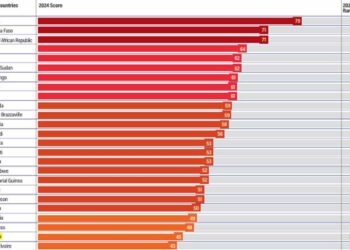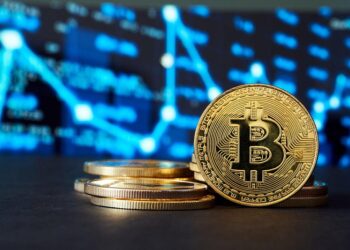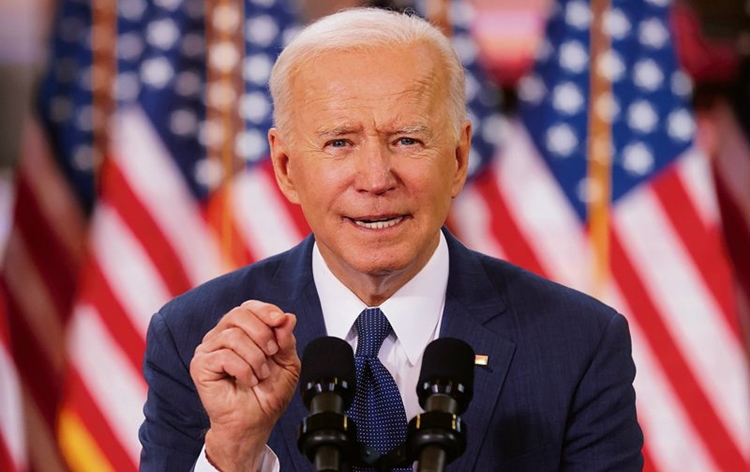The Nigerian economy is expected to be challenged in the year 2020 and possibly beyond. This could be attributed to policies implemented based on impulse and not facts in 2019 by President Muhammadu Buhari’s administration, a report from SB Morgen Research disclosed.
The report described Buhari’s economic policies as ones designed by a protectionist instinct, arbitrariness and a more interventionist stance. How will institutions, and indeed the economy, cope with policies that are implemented based on impulses? It inquired.

Highlights of the report
- All metrics for the average Nigerian is in decline.
- The country’s Human Development Index(HDI) value has only shown marginal increases in the last four years, while capital income has fallen, at a time of rising inflation and tepid growth.
- At least, 600 people lost their lives by the violence that could be traced to election-related incidents that occurred between the launch of political campaigns and the actual elections.
- A survey conducted in the wake of general elections showed increasing apathy to the political process.
- Chinese investments and contracts in sub-Saharan Africa totalled $299 billion between 2005 and 2018, Chinese President Xi Jinping had vowed to invest a further $60 billion in African countries.
- Average oil prices were below $60 in 2019 while Nigeria’s oil production was under 1.75 million barrels per day, above the pledged OPEC quota of 1.69 million barrels per day.
- Nigeria ramped up production significantly from June increasing its quota; thereby, forcing OPEC to make complaints in early November after a new quota of 1.77 Mbps was agreed.
- Food and general inflation fell for much of 2019 only to rise towards the end, driven by an unexpected source. That is the closure of Nigeria’s land border to the movement of goods to and from its neighbours to curb smuggling of petroleum products, rice, and motor vehicles among others.
[READ MORE: Economy: Reviewing FG’s 2019 revenue performance)
Head, Research, SBM Intelligence, Cheta Nwanze, said, “The Nigerian economy continues to struggle albeit remaining on a growth path that saw a 2.28% year-on-year. Growth in the third quarter of 2019 compared to 2.12% rise in the previous quarter.
“The nation’s fiscal position has been deteriorating in recent years, as evidenced by a rising deficit and increased borrowing. Failure to enforce tax laws and broaden the tax base has resulted in weak revenue generation. Increased debt has resulted in heightened service costs (about 52% of the government’s revenue). Despite this, the government is seeking approval to take $30 billion in new loans, which if approved will drive the cost to 80% of revenue, an unsustainable figure.”
What to expect in 2020
SBM expects slight economic growth in 2020, which is in line with the World Bank and the International Monetary Fund (IMF) projection for the world economy at 2.6% and 3%. It stated that the direction of global growth in 2020 would be heavily reliant on the outcome of US-China trade talks and Brexit, “and we foresee that because Donald Trump is facing re-election in 2020, he will be more open to dialogue with China thus opening the way for more global growth in the New Year.”
On the local scene, the research firm expects 2020 growth to beat the World Bank’s forecast and come in about 2.4% on the back of improved oil revenues.
“We believe that Nigeria would be stuck in a low-growth cycle for the next few years unless more critical reforms are implemented. A high growth rate will require attracting targeted investment in identified growth-driven sectors like oil and gas, agriculture, manufacturing, and telecoms among others,” Nwanze added.

It expects inflation to continue its sharp rise in the new year leading with food inflation. While the Governor of Central Bank of Nigeria, Godwin Emefiele, expects inflation to moderate within 3-4 months, SBM insists that it expects an average of 13% in 2020.
The projection could be attributed to foreign exchange supply restrictions on certain food items, partial border closure, Value Added Tax increase and a possible increase in electricity tariffs and the retail price of petrol.
In all, while all hands are on deck, SBM said the economy might dip back into recession before 2020 is out, as the government is unable to inject any kind of stimulus due to its precarious financial position.
















.gif)







where is the evidence ?,protection measures,arbitrariness,the only protection action done by Mr Buhari was the closing of the border,which will open this month,it is farmers who are pressurizing govt to closes the border.i think things will get better as business confidence is coming back,IF THE GOVT CONTINUE ALL THEIR SOCIAL ACTION,SOCIAL LENDING IN CORMMERCIAL BUSINESS,WE DO NOT FORGET GOVT HAVE STABILIZED THIS RECESSION,AND ALSO,THIS IS THE FIRST RECESSION IN NIGERIAN HISTORY.
if WE GO BACK TO PRE-RECESSION AND IF THIS BUSINESS CONFIDENCE WILL REACH THIS PRE-CONFIDENCE,and WE DO HAVE CBN INTERVENTION,THE ECONOMY MAY GROW MUCH BETTERas the main action by the govt was in containing this recession,they may change style,by june,if they have seen confidence have been restores,this recession took everybody by surprise and it was very shocking,it is a rude awakeing for all Nigerian,if the economy maintains a growth above the present level for this year and next year,NIGERIANS WILL SEE SOMETHING THEY HAVE NOT SEEN BEFORE